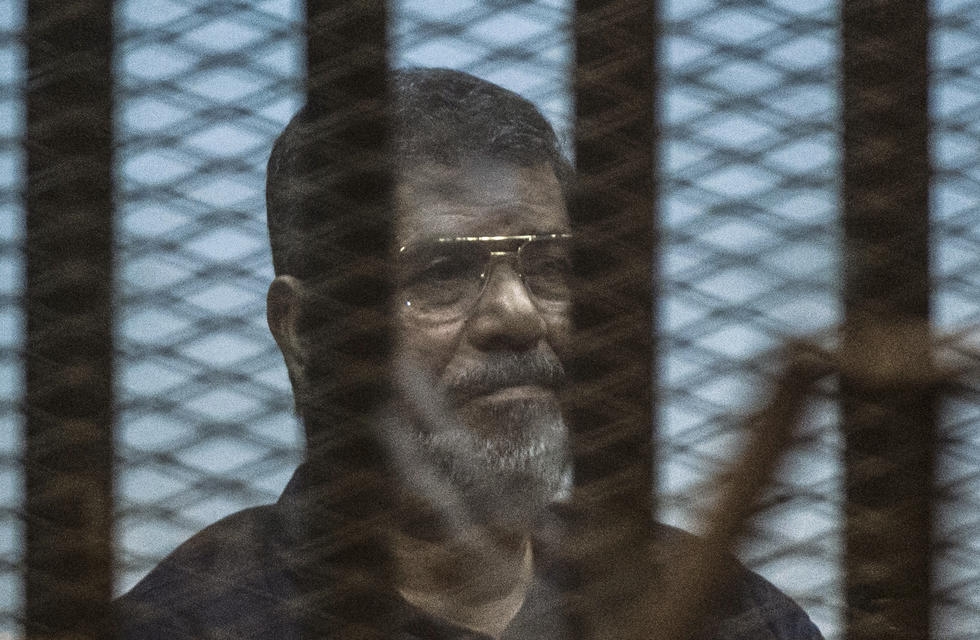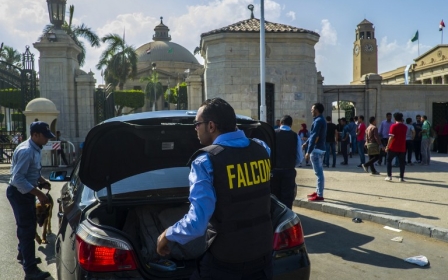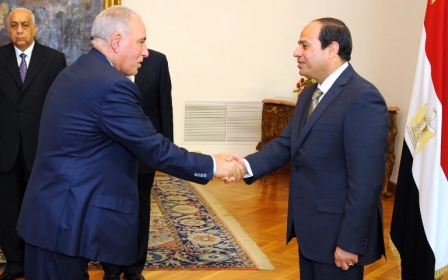Morsi back in court accused of 'insulting' Egypt's judiciary

Ousted Egyptian president Mohamed Morsi along with several secular figures behind Egypt's 2011 uprising go on trial on Saturday, as the authorities press on with a crackdown on all forms of opposition.
The trial for "insulting the judiciary" is the fifth for Morsi, who was sentenced to death last week over a mass prison break during the uprising against longtime autocrat Hosni Mubarak.
Morsi and other opponents of President Abdel Fattah al-Sisi are back in the dock, including several liberal and secular opposition leaders.
Twenty-six defendants - including even some Sisi supporters - stand accused of contempt of court in comments made in parliament, speeches, on social media or in interviews.
"The crackdown against the opposition is only intensifying and the judiciary is very much at the forefront of this crackdown," said Shadi Hamid, a fellow at the Brookings Centre for Middle East Policy.
"The trial will be kind of a test case of what the regime is thinking, not just of Islamists but also of the liberal and secular opposition as well."
Among the defendants is Alaa Abdel Fattah, a top secular activist behind the protests that led to the downfall of president Mubarak.
Already in prison for participating in an "illegal protest" in November 2013, he has been charged over comments on Twitter on 2011 raids on the offices of foreign civil society groups.
Amr Hamzawy, a well-known political science professor and former MP, and human rights lawyer Amir Salem are also among the defendants.
Alongside Abdel Fattah, they had called for Morsi's overthrow.
Morsi was toppled by then army chief Sisi in July 2013 after mass street protests against his turbulent year in power.
A sweeping government crackdown overseen by Sisi has since left hundreds of Morsi supporters killed by security forces as they crushed street protests, thousands jailed and many more sentenced to death after speedy mass trials, described by the United Nations as "unprecedented in recent history".
Rights group accuse the authorities of using the judiciary as a tool to crush all kinds of opposition - Muslim Brotherhood as well as secular.
While Morsi and some leaders of his blacklisted Muslim Brotherhood have been sentenced to death in other trials, the judiciary has also sentenced several secular activists to long jail terms.
The latest trial is an example of "political revenge", said defence lawyer Gamal Eid, who is representing Abdel Fattah.
Former MP Mostafa al-Naggar is being tried for his criticism of the judiciary after a court in June 2012 sentenced Mubarak to a life term over the deaths of 800 protesters during the 2011 revolt.
The verdict triggered angry protests demanding the death penalty for the veteran autocrat.
An appeals court overturned that verdict and ordered a retrial, which saw murder charges dropped against Mubarak.
"What I said in parliament was not an insult to the judiciary, but a call for judicial independence and reform," Naggar told AFP.
New MEE newsletter: Jerusalem Dispatch
Sign up to get the latest insights and analysis on Israel-Palestine, alongside Turkey Unpacked and other MEE newsletters
Middle East Eye delivers independent and unrivalled coverage and analysis of the Middle East, North Africa and beyond. To learn more about republishing this content and the associated fees, please fill out this form. More about MEE can be found here.




